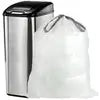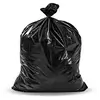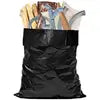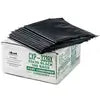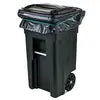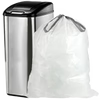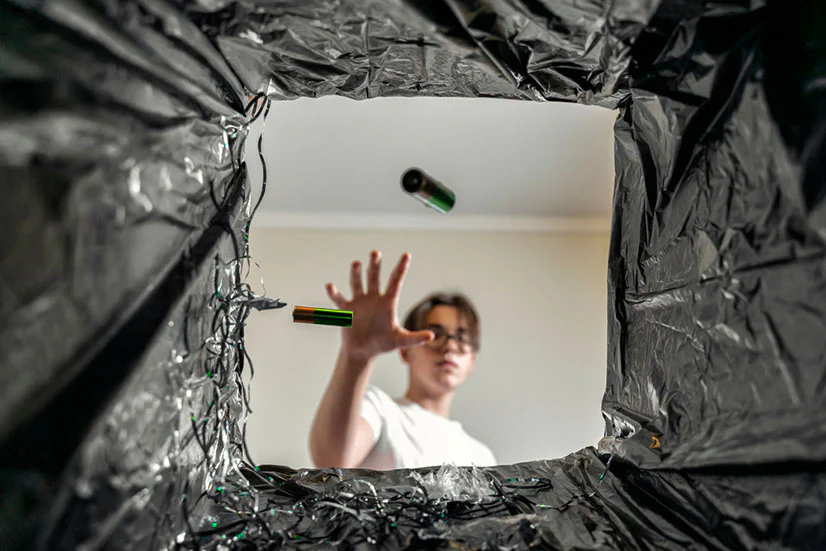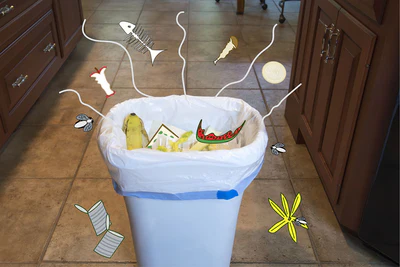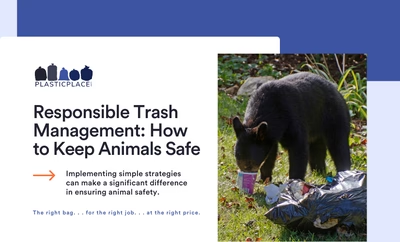Source: Lena Ogurtsova/Shutterstock
The unfortunate truth is that all batteries will eventually reach the end of their lives. When that happens, you’ll need to know how to dispose of these batteries responsibly — whether they’re single-use AAs or the lithium ion batteries that power our smartphones.
So, when the time comes for disposal, can you throw batteries in the trash? Do they belong in your kitchen trash bag with other household waste, in your single-stream recycling or none of the above? Let’s get the facts on this highly charged issue. (Sorry; we had to sneak in a battery pun somewhere!)
Can You Throw Batteries in the Trash?
Here’s the rule of thumb: In most communities, small, non-rechargeable household batteries are OK to throw in the trash. However, larger batteries and anything that’s rechargeable usually need to be recycled by a special facility.
There are some important exceptions to this. For example, California requires all batteries to be disposed of at a designated recycling facility. Ultimately, the only way to know for sure is to check your state and local laws. A call or email to your local sanitation or environmental department is usually a good place to start.
Single-Use Alkaline Batteries
These are the common household batteries you’ll find in devices like TV remotes and children’s toys, as well as the larger D cell flashlight batteries and 9-volts. According to the U.S. Environmental Protection Agency, you can safely throw these batteries in the trash in most places.
If you’re looking for an eco-friendly alternative, though, many battery recycling services do accept used household batteries. Plus, as we mentioned before, California residents are required by law to recycle used batteries, so check out CalRecycle’s battery recycling resources to find what you need.
Single-Use Lithium Coin Cell Batteries
Coin cell batteries are the tiny circular batteries that power devices like wristwatches and key fobs. Many of these batteries contain lithium, which means they present many of the same hazards that other lithium batteries do when they end up in landfills or recycling centers.
Instead, take your lithium coin cell batteries to a battery recycling facility. Check services like Earth911 to find a location near you that accepts coin cell or button cell batteries.
Small Rechargeable Batteries
Rechargeable batteries for consumer electronics are everywhere, from smartphones to power tools. They come in a variety of forms, including lithium-ion and nickel-cadmium. Whatever type it is, you should never throw a rechargeable battery (or a device with a rechargeable battery attached) in the trash or recycling.
These batteries present multiple potential hazards in a landfill, including fires and heavy metal contamination. Instead, see if your device manufacturer has a take-back or trade-in program or if you can donate it to charity. If those options aren’t available or the device isn’t in working condition, find an e-waste dropoff facility near you.
Order Easy-to-Lift Drawstring Trash Bags Now!Vehicle Batteries
The batteries in traditional gas or diesel vehicles are full of toxic chemicals and should never be thrown in household trash. In fact, it’s illegal almost everywhere to throw these batteries away due to their safety and environmental hazards.
Fortunately, almost all auto parts stores accept used batteries for proper recycling. Place your old battery in a durable bag, such as a black garbage bag or recycling bag, to protect against leaks during transport. Then, just take it to your local auto parts store — you may even get a gift card or discount for a new battery!
What about the large lithium batteries that power electric and plug-in hybrid vehicles? First, consumers generally shouldn’t attempt to remove or replace these batteries themselves. However, if you have a damaged or dead electric vehicle battery, contact the manufacturer or dealership to learn what to do with it. EV batteries contain valuable metals that can be recycled for new rechargeable batteries, but they’re extremely hazardous when disposed of incorrectly.
Other Electronics
Generally, electronic devices don’t belong in the standard municipal solid waste stream. This includes TVs, computers, microwaves, game consoles and basically anything else electronic. These devices become hazardous e-waste in municipal solid waste or recycling streams.
If you need to dispose of a household appliance, arrange a bulky item pickup with your local garbage service or hire a junk hauling company to remove it. Getting rid of old electronics like laptops or smartphones? Again, consider donation as your first choice or find a business near you that offers electronics recycling services.

Source: Estrada Anton/Shutterstock
No matter what’s in your trash, Plasticplace is here to help you dispose of it the right way! Check out our whole selection of eco-friendly trash bags for cleaner and greener disposal, and remember that we offer free same-day shipping on most orders. Shop All Eco-Friendly Trash Bags Here! 4.9 out of 5
4.9 out of 5  Mix & Match: Buy any two products for 10% off!
Mix & Match: Buy any two products for 10% off!













